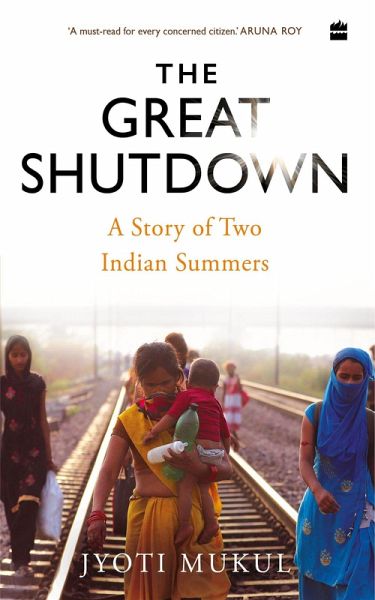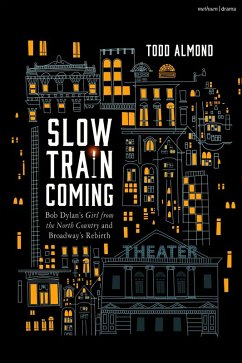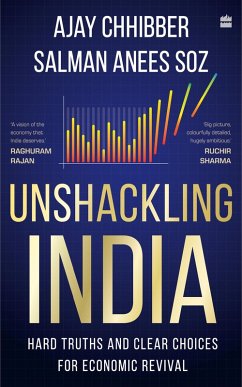
The Great Shutdown (eBook, ePUB)

PAYBACK Punkte
0 °P sammeln!
On 24 March 2020, after the outbreak of the coronavirus pandemic, a complete nationwide lockdown was announced in India. In addition to other restrictions, which included suspension of air travel and long- and short-distance modes of transport, it was decided that the Indian Railways would no longer operate. The shutting down of the almost 68,000 kilometre-long railway network severed, in many cases, the only link for people with their home states.The Great Shutdown closely examines the repercussions of these decisions, the resultant uncertainty and emotional crisis for millions of people, esp...
On 24 March 2020, after the outbreak of the coronavirus pandemic, a complete nationwide lockdown was announced in India. In addition to other restrictions, which included suspension of air travel and long- and short-distance modes of transport, it was decided that the Indian Railways would no longer operate. The shutting down of the almost 68,000 kilometre-long railway network severed, in many cases, the only link for people with their home states.
The Great Shutdown closely examines the repercussions of these decisions, the resultant uncertainty and emotional crisis for millions of people, especially migrant workers, who were separated from their families at a time when the threat of an unknown disease loomed large. It chronicles the COVID-19 regulations that were enforced during the lockdown, the different phases of unlocking and the second wave, and their humanitarian challenges. It also talks about the alternatives that could have been explored to keep travel going, which would have saved countless people a lot of suffering.
The Great Shutdown closely examines the repercussions of these decisions, the resultant uncertainty and emotional crisis for millions of people, especially migrant workers, who were separated from their families at a time when the threat of an unknown disease loomed large. It chronicles the COVID-19 regulations that were enforced during the lockdown, the different phases of unlocking and the second wave, and their humanitarian challenges. It also talks about the alternatives that could have been explored to keep travel going, which would have saved countless people a lot of suffering.
Dieser Download kann aus rechtlichen Gründen nur mit Rechnungsadresse in A, D, L ausgeliefert werden.













